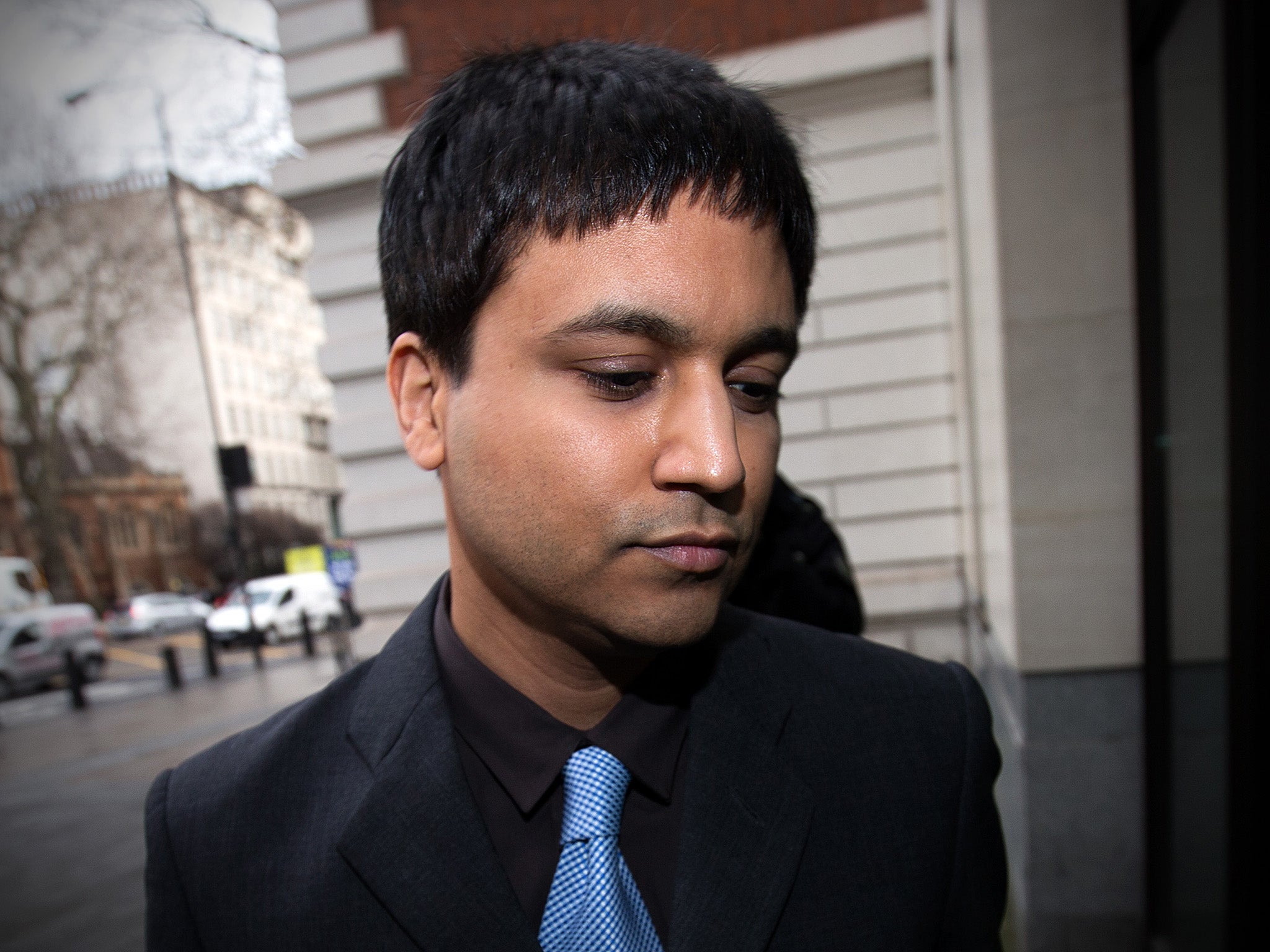Navinder Singh Sarao: British 'flash crash trader' broke no laws, says lawyer
US government is seeking to extradite Mr Sarao over allegation of so-called 'spoofing' in the 2010 Wall Street 'flash crash'

Attempts to extradite to the United States a trader who is accused of helping to trigger a multibillion-dollar stock market crash from a room in his parents’ house in Hounslow face an “insuperable stumbling block”, a court has heard.
The US government is seeking to extradite Navinder Singh Sarao, 37, to face criminal charges relating to the 2010 Wall Street “flash crash” he is said to have helped cause by so-called “spoofing” – bidding with the intent to cancel the bid before execution – from his parents home 3,500 miles away in west London.
“The key question for this court is whether the conduct of Mr Sarao amounts to a crime in the UK,” James Lewis QC, representing Mr Sarao, said. “Quite simply it does not. There’s no English crime of spoofing. To put it bluntly, if you uphold that as criminal activity in England, thousands of traders would be treated as criminals.”
Mr Sarao is accused of placing “false” and “fictitious” orders on the Chicago Mercantile Exchange (CME) for years. The US authorities allege that Mr Sarao is guilty of spoofing – placing large orders that manipulated the markets and then cancelling or changing them, allowing him to buy or sell at a profit.
Mr Sarao’s spoofing netted him a profit of $40m (£28m), according to the the US. The 22 charges that Mr Sarao faces carry sentences totalling a maximum of 380 years.
The charges claim he contributed to events that caused the flash crash on 6 May 2010, when the Dow Jones Industrial Average briefly fell more than 1,000 points, temporarily wiping out nearly $1 trillion in market value.
Mark Summers QC, representing the US government, said: “The Chicago Mercantile Exchange was a bubbling pot on the day of the flash crash and it bubbled over. Mr Sarao was a significant heat source.”
But his lawyers insisted Mr Sarao’s link to the 2010 Wall Street plunge was only “gossamer-thin”. The idea of a “meaningful, causal” link to the flash crash was “nonsense”, he said, and pointed out that Mr Sarao had stopped trading an hour before the market plunged. His defence team said that if Mr Sarao is to be extradited, the US must prove that any alleged offence must be a crime in both countries.
Mr Lewis said prosecutors had committed a “fatal flaw” because they had not shown his alleged behaviour amounted to fraud by false representation. Nowhere in the extradition request was the representation identified, he said.
The orders Mr Sarao placed were genuine orders that exposed him to financial risk if they were executed which “created true liquidity” and did not give a “false or misleading impression”, he told the extradition hearing at Westminister magistrates’ court.
The US authorities claim Mr Sarao made $875,000 in profit from his trades.
District Judge Quentin Purdy reserved judgment in the case until 23 March. Mr Sarao, who has Asperger’s syndrome, is on conditional bail.
Join our commenting forum
Join thought-provoking conversations, follow other Independent readers and see their replies
Comments